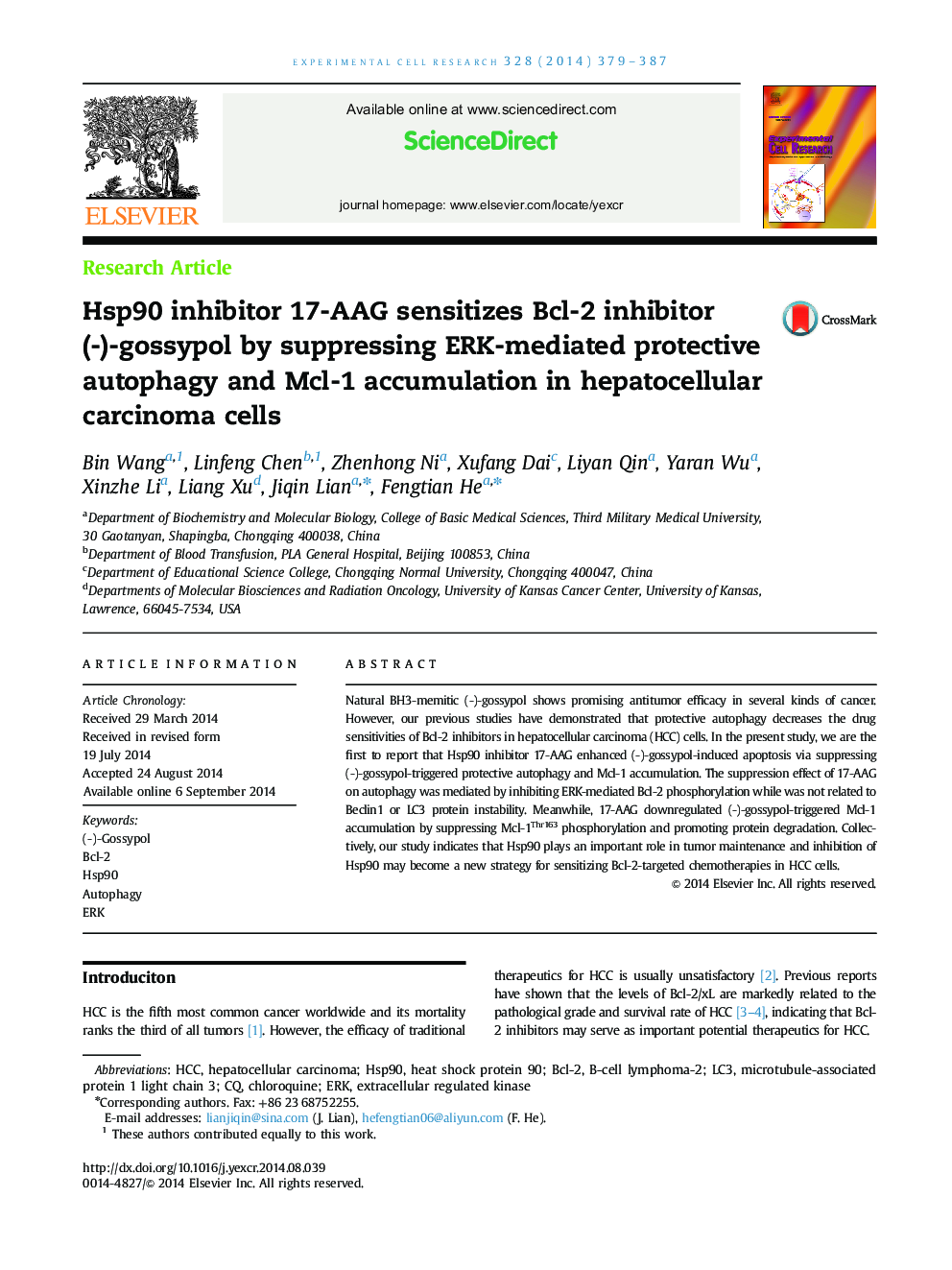| Article ID | Journal | Published Year | Pages | File Type |
|---|---|---|---|---|
| 2130272 | Experimental Cell Research | 2014 | 9 Pages |
•17-AAG sensitizes HCC cells to (-)-gossypol by inhibiting autophagy and enhancing apoptosis.•The suppression effect of 17-AAG on protective autophagy is not related to Beclin1 or LC3 protein stability.•17-AAG inhibits this protective autophagy via suppressing ERK-mediated Bcl-2 phosphorylation.•17-AAG partially reverses Mcl-1 accumulation via inhibiting Mcl-1Thr163 phosphorylation and decreasing protein stability.
Natural BH3-memitic (-)-gossypol shows promising antitumor efficacy in several kinds of cancer. However, our previous studies have demonstrated that protective autophagy decreases the drug sensitivities of Bcl-2 inhibitors in hepatocellular carcinoma (HCC) cells. In the present study, we are the first to report that Hsp90 inhibitor 17-AAG enhanced (-)-gossypol-induced apoptosis via suppressing (-)-gossypol-triggered protective autophagy and Mcl-1 accumulation. The suppression effect of 17-AAG on autophagy was mediated by inhibiting ERK-mediated Bcl-2 phosphorylation while was not related to Beclin1 or LC3 protein instability. Meanwhile, 17-AAG downregulated (-)-gossypol-triggered Mcl-1 accumulation by suppressing Mcl-1Thr163 phosphorylation and promoting protein degradation. Collectively, our study indicates that Hsp90 plays an important role in tumor maintenance and inhibition of Hsp90 may become a new strategy for sensitizing Bcl-2-targeted chemotherapies in HCC cells.
